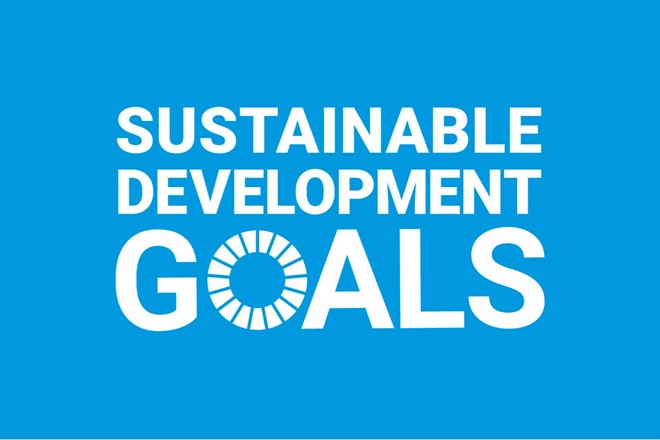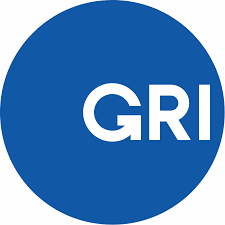Syncona is committed to taking a best practice approach to its sustainability reporting, aligning with well-known frameworks and standards which help to ensure that our reporting is easily accessible and relevant for our stakeholders. We take an active approach to reviewing upcoming changes in sustainability reporting guidance and engage with our shareholders to ensure that we understand which frameworks align with their own processes.

Sustainability Report 2024
Our Sustainability Report outlines or Sustainability Policy, our approach to responsible investing, how we will manage sustainability issues within the portfolio and covers our activities for the 2023/4 financial year.
The UN Sustainable Development Goals
Learn more about the UN SDGs, a collection of 17 interlinked global goals designed to be a "blueprint to achieve a better and more sustainable future for all".

Aligning to the UN SDGs
The UN’s 17 Sustainable Development Goals (SDGs), adopted by member states in 2015, represent a broad set of goals which target the end of poverty, the protection of the planet and increased peace and prosperity by 2030. We have prioritised four SDGs that align most closely with our business priorities and our sustainability approach.
Mapping our sustainability reporting to internationally recognised reporting frameworks.
Syncona is committed to taking a best practice approach to its sustainability reporting, aligning with well-known frameworks and standards which help to ensure that our reporting is easily accessible and relevant for our stakeholders. We take an active approach to reviewing upcoming changes in sustainability reporting guidance and engage with our shareholders to ensure that we understand which frameworks align with their own processes.

Goal 3:
Ensure healthy lives and promote wellbeing for all at all ages
Syncona’s purpose is to invest to extend and enhance human life. Through our portfolio of companies, we develop treatments which help people to live healthier lives, and we are committed to making medicines more accessible by ensuring our business and portfolio companies operate with transparency and integrity.
Goal 8:
Promote sustained, inclusive and sustainable economic growth, full and productive employment and decent work for all
Syncona and its portfolio companies provide employment for over 1,200 people globally, providing opportunities in a broad range of roles within a vibrant and growing sector. We are committed to promoting diversity in the life sciences, seeing its promotion as both an economic and moral imperative.
Goal 9:
Build resilient infrastructure, promote inclusive and sustainable industrialisation and foster innovation
Innovation through effective, high-quality research and development sits at the core of what our portfolio companies do. We have high expectations of our portfolio companies and work in collaboration with them to deliver high standards in areas such as data stewardship, clinical trials and competitive practices.
![]()
Goal 13:
Take urgent action to combat climate change and its impacts
Syncona understands that climate change represents a systemic risk to our countries and economies, and aspires to be net zero throughout its value chain by 2050. It is committed to minimising the environmental impact that it has on the world, both by taking direct action in its own operations and working with its portfolio companies to assist them in aligning their business operations with the goals of the 2015 Paris Agreement.
![]()
A focus on climate risks and opportunities
The Task Force on Climate-related Financial Disclosures (TCFD) is the principal global framework for assessing the risks and opportunities that are relevant to a company from climate change. Syncona is committed to incorporating climate risk analysis into its overall risk management framework and carried out a comprehensive climate scenario analysis in FY2021/2. Since this time, the Syncona team has re-visited the findings of this analysis on an annual basis to determine whether they remain accurate given the evolution of the portfolio. The conclusion of this year’s review has been that the identified risks and opportunities, along with their level of impact, remain unchanged. Syncona also understands that the UK Government intends to integrate TCFD into International Sustainability Standards Board (ISSB) standards. It is our intention to review the related guidance from the government once this is available, and to consider whether any consequential changes to our sustainability approach will be required.
Supporting our stakeholders in navigating our sustainability reporting
The GRI Standards are generally seen as the most widely adopted global standards for sustainability reporting. They take an index based approach which enables reporting companies to more easily direct stakeholders to their key sustainability priorities and metrics. Syncona has reported using the GRI standards since 2021.

Our role as a responsible investor
The UN Principles for Responsible Investment (UN PRI) is the world’s leading international network of aligned investors committed to the principles of responsible investment. Syncona submitted its first questionnaire to the PRI in FY2023/4 and remains committed to reporting to the PRI on an annual basis1.
 Developing and publishing our first net zero target
Developing and publishing our first net zero target
In 2024 Syncona had its first net zero target accepted by the NZAM initiative. This initiative was launched in 2020 with its signatories representing over $57 trillion in assets under management. Publishing a target in line with the requirements of NZAM supports Syncona’s long-term aspiration to be net zero across our full value chain by 2050 and provides our stakeholders with an interim net zero target for our portfolio for 20301.
1. Syncona is signed up to the UN PRI and NZAM initiatives through its investment manager, SIML.
Key sustainability pillars
We have engaged with our key stakeholders to understand the sustainability issues which are most material to the business. The outcome of the materiality assessment has been used to develop our Sustainability Policy which focuses on four key pillars.
- Our social impact
- Responsible investor and partner
- Inspiring and empowering our people
- Responsible and ethical business



